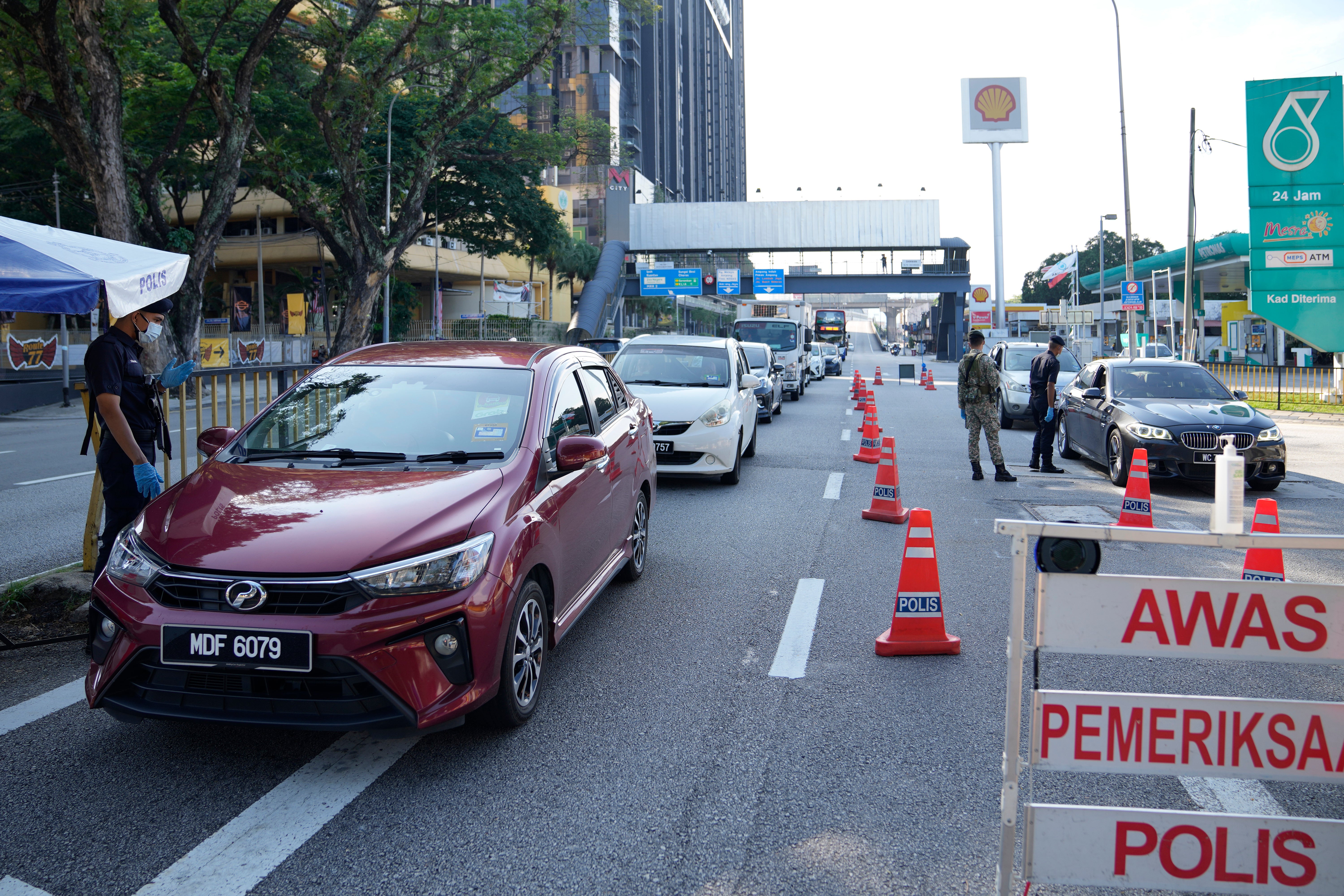Malaysia's Parliament reopens after 7-month virus suspension
Malaysia’s Parliament has reopened for the first time this year after a seven-month suspension under a coronavirus emergency that has failed to curb a worsening pandemic

Your support helps us to tell the story
From reproductive rights to climate change to Big Tech, The Independent is on the ground when the story is developing. Whether it's investigating the financials of Elon Musk's pro-Trump PAC or producing our latest documentary, 'The A Word', which shines a light on the American women fighting for reproductive rights, we know how important it is to parse out the facts from the messaging.
At such a critical moment in US history, we need reporters on the ground. Your donation allows us to keep sending journalists to speak to both sides of the story.
The Independent is trusted by Americans across the entire political spectrum. And unlike many other quality news outlets, we choose not to lock Americans out of our reporting and analysis with paywalls. We believe quality journalism should be available to everyone, paid for by those who can afford it.
Your support makes all the difference.Malaysia’s Parliament reopened Monday for the first time this year after a seven-month suspension due to a coronavirus emergency that has failed to curb a worsening pandemic.
Lawmakers are expected to question Prime Minister Muhyiddin Yassin’s emergency declaration and his government’s management of the pandemic after Malaysia's total cases passed 1 million Sunday. Infections have jumped eight-fold from the whole of last year and are up 77% since a national lockdown on June 1 while deaths have climbed steeply to near 8,000.
Critics have slammed the emergency as a ruse for the embattled leader to stay in power amid challenges to his leadership from within his coalition and the opposition. The emergency allows the government to halt Parliament and approve supplementary budgets and impose ordinances without legislative approval.
The five-day session of the lower house is being held under strict virus-prevention measures, with lawmakers masked and separated by transparent screens. It comes shortly before the virus emergency expires on Aug. 1 after Muhyiddin bowed to growing calls, including from the king, to resume Parliament earlier.
Muhyiddin has a razor-thin majority in Parliament, and the biggest party in his ruling alliance earlier this month withdrew support for him for failing to tackle the pandemic.
The move by the United Malays National Organization, or UMNO, could cause his government to collapse, but the attorney-general said Muhyiddin remained in power until it can be proven in Parliament that he lost majority support.
That keeps his position safe for now as the government has said the special parliamentary session will focus purely on the pandemic and no other motions will be allowed.
Muhyiddin will brief the house on an economic recovery plan after the second prolonged lockdown hit businesses badly. Other ministers will speak during the special session about vaccinations, the emergency declaration and other virus topics, the Parliament website said.
A dozen emergency declaration ordinances including an anti-fake news bill, will also be presented for scrutiny.
“It’s Muhyiddin’s perfunctory, skeletal response to the king’s repeated urging to convene Parliament soonest, as the session is practically stripped of any pretension of proper parliamentary function,” said Oh Ei Sun, a senior fellow at the Singapore Institute of International Affairs.
“In fact, it summarily reduces parliament to worse than rubber-stamp role” with no voting allowed, he said.
Muhyiddin became prime minister in March 2020 after initiating the downfall of the former reformist government that won the 2018 elections. His Bersatu party joined with UMNO, which was ousted in the 2018 polls, and others to form a new government, but his alliance is unstable. UMNO has been unhappy at playing second fiddle to Bersatu and opposes the emergency declaration.